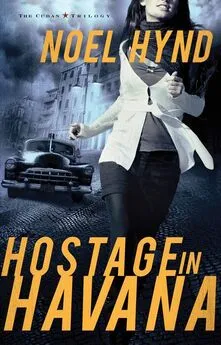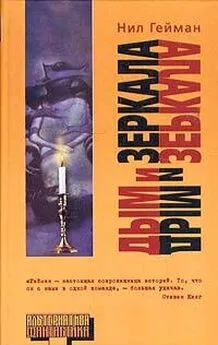Noel Hynd - Hostage in Havana
- Название:Hostage in Havana
- Автор:
- Жанр:
- Издательство:неизвестно
- Год:неизвестен
- ISBN:нет данных
- Рейтинг:
- Избранное:Добавить в избранное
-
Отзывы:
-
Ваша оценка:
Noel Hynd - Hostage in Havana краткое содержание
Hostage in Havana - читать онлайн бесплатно полную версию (весь текст целиком)
Интервал:
Закладка:
“I don’t know.”
“But you spent the night with him.”
“We met at a hotel. We had some drinks. That’s all.”
“You’re a liar.”
A thought was upon her, a desperate one. She had one card to play and almost resisted playing it, for if it failed she had nothing left.
“Figaro,” she said.
“What?” he answered rudely.
“You mentioned Spain before. There is an opera. The Barber of Seville.”
“I hate opera,” he snapped. He was suddenly angry. “Pomp and extravagance, the indulgence of the capitalist ruling classes. My wife listens to opera. Drives me out of the house with it! Maybe I should lock her up too. Why do you even mention it, opera?”
“I don’t know,” she said softly. “It was just a thing to say.”
“Why do you fail to understand the gravity of your situation?” he pressed. “No one outside of Cuba knows where you are. I am your only chance, and you are babbling, giving me nothing. I need a confession from you,” he said. “Who are you, who came to Cuba with you, and what is your purpose?”
She stayed silent.
“All right,” he said. “Have it the way you wish. He reached to a side drawer of his desk and pulled out a box, the type used to hold evidence. He opened it. He pulled from it her credit cards and her Mexican passport and laid them on the center of the desk. Then he pulled out her Walther and set it on the table with a loud flourish. The magazine had been removed.
“These are the tools of a saboteur.” He pushed them around disdainfully. “Why don’t you at least identify the agency that sent you to Cuba? CIA? A nod will suffice and get you a better cell, a private one.”
Nothing from Alex.
“You will tell me nothing, but I will tell you this,” Mejias said. “The airplane that came to take you back to America left the country without you this morning. The aging defector, the man you came to get, Roland Violette, was on it. He is mentally ill and no use to anyone. He also murdered an old adversary in love the other night in Havana. A Frenchman. So of course Violette wished to flee. Also on the plane was the man who came into Cuba with you. His name is Paul Guarneri. He sends his regards, I would suppose, as he left you behind to face the wrath of Cuban law. How do you like that?”
She refused to answer, much less believe what she was hearing.
“Where were you six nights ago?” he asked.
“I don’t remember,” she said with a shrug.
“You don’t remember!” His voice rose sharply in anger. “You don’t remember? Six nights ago a patriotic Cuban named Julio Garcia was shot to death as he peaceably ate his dinner at a restaurant in Habana Vieja. A single assassin walked in, a man connected with American gangsters, and shot him in the face with a Browning .38 special. You are telling me that you have no knowledge of this? Do you insist you were nowhere near the scene of the murder?”
“Yes, I do!” she said. “I had nothing to do with anything like that!”
“The murder was done by your gangster friend to settle an old family grudge. So you are linked to that also, as well as the man who committed the murder of a patriotic Cuban! That is what we have on you. Illegal entry into Cuba. Sabotage. Espionage. Gangsterismo. Links to two homicides. What do you say? You and you alone have been left behind to face the wrath of the law.”
She looked up.
“I have nothing to say. Speak to my embassy.”
“If you think you will be spared a firing squad because you’re a woman,” he said, “think again!”
“I have nothing to say,” she said softly.
“We will speak again,” he said. “You are my prisoner. Indefinitely.”
In a fury, he stood. He gathered his evidence and went to the door.
He shouted profanely to his guards who were a short distance down the hall. Then two new ones appeared. They each took Alex by an arm and roughly ripped her from her chair. They marched her down several unfamiliar corridors and opened an iron door that led to a small cell. They pushed her in. The door slammed behind her.
There was a sink against one wall, a mattress and a hole in the cement floor. There was one window, way up high, maybe twelve feet off the ground. There was no way she could get to it, nor would she have been able to get through it.
She was in isolation but had no idea for how long. She sat on the stone floor, let her face sink into her hands and prayed as she hadn’t prayed in months. Then she broke down completely and cried.
SIXTY-ONE
For the next two days, Alex remained in isolation. A brutal overhead light burned all the time. Breakfast was served at 5:00 a.m., a piece of bread, a banana, and a dirty plastic bottle filled with water. The water contained particles of something and had a strange tint to it.
Strangely, there was no more questioning. Alex feared that her captors, in their incompetent but Third-World way, were trying to find out more about who she was. Maybe Paul hadn’t really fled. Maybe they were searching for him. All she knew was that her head was turning mushy. Thoughts of suicide returned to her, like an old, unwelcome adversary, an evil black spirit, that she had already defeated once in the dark days after Kiev.
Against these dark impulses, she tried to weigh everything that her Christian faith had brought to her: having been on the threshold of suicide before, she was later grateful for not having pulled a trigger. But where was God now?
The old phrase came back: a permanent solution to a temporary problem. But how temporary was this problem? Thirty years’ worth of temporary? Would her government really get her back? Had Paul Guarneri set her up? Had he really killed a man in Havana perhaps to avenge an old family grievance? Could she believe a single word that Major Mejias had said? Or would she have been wise to believe every word of it?
In her tiny cell, as her mind tilted and rambled, she looked for ways to kill herself – theoretically, at least. She saw none, other than a hunger strike. But then, if she died in custody, wouldn’t that just be a victory for those who’d imprisoned her? A stubborn streak started to kick against her suicidal impulses. Her spirits seesawed by the hour.
On the third day she was taken out of her cell with four other women.
They were marched to a shower and told to disrobe. A male guard came by, amused, and sprayed them for lice. Then they were led to the next chamber, which was a shower. They were given a crude piece of industrial soap and told they had five minutes to wash as two fat matrons stood at the portal to the showers and watched.
The five-minute limit was the first mention of time since she had arrived. Time: she wondered if her existence over the last few days presaged the coming years.
She was led back to her cell. That night, for the first time, she felt herself start to freefall mentally. She turned toward the wall, prayed, thought of home, the long road that had led her here, and she cried for hours. She prayed that some force – human, God, Jesus, anyone who could save her now – would somehow intercede and get her out of here. She thought of her fiance, Robert, whom she had lost on the bloody streets of Kiev, and she thought of growing up in California and her grandmother’s funeral in Mexico where they prayed and sent paper lanterns down the river. She knew she was getting delirious, but it didn’t matter because the delirium was a mechanism that would take her out of this hell on earth. If she couldn’t leave physically, at least she could leave mentally.
Then she wondered if that was what had happened to Roland Violette. Had his sanity been a sane reaction against the insanity of the life he had led? She didn’t know and had too much time to think about it.
Then came another night in solitary.
Alex must have been sleeping, she realized with a start, sleeping in a sitting-up position on her mattress, because the rattle of keys awakened her. There was the grating, creaking, banging noise, of the door being opened. Then she was looking at three guards who were staring at her without saying anything. She had never seen them before, and they looked unpleasantly official.
The first two were female, one a thick woman with grayish hair pulled back and a thick middle. The younger one was slimmer and looked as if she might be part Russian. Behind them was a man. He carried an automatic weapon across his chest. The weapon was chained to his belt so that no one could grab it from him and run.
“?Levantse!” the older woman demanded. Alex tried to blink the fatigue out of her eyes. “You’re moving.”
One of them threw a pair of rubber thongs on the floor.
Alex stood. She was hardly in a position to resist. Emotionally, she was flying blind. She hoped that somehow the police had contacted the Mexican government and some steps were being taken to get her released. But she had no reason to believe anything of the sort.
She stood and slid the thongs onto her feet. She held out her hands for cuffs. The older woman curtly said that the manacles wouldn’t be necessary. They indicated she should walk. The matrons went first, followed by Alex, and finally the guard with the automatic rifle followed.
They went through two checkpoints. Alex tried to remain alert and observe as much as possible. She caught her first view of a courtyard. It was night and the yard was empty. Her eyes went to the walls. They were old, maybe fifty feet high, and patrolled with guards who commanded heavy searchlights. There was a flock of gulls far beyond, circling, and from the tone of the sky she guessed that she was somewhere near the water.
After the checkpoints, they walked her along a corridor. The path was long and dim. There was a ceiling fan that didn’t work. The paint was peeling off the concrete walls, which were yellowish, discolored, and wet with humidity. She stole a glance at a wristwatch on one of her guards. It was 2:00 a.m. It occurred to her that it was around this time of morning that she had been on her way into this island, twelve days earlier, she calculated, unless it was thirteen.
They took her through another gate. This one was metal and more modern. It led to another building: modern, glass, and steel. A walk down another corridor, this one with linoleum, and her keepers led her into a small room. They ordered her to remain standing.
“Now you wait,” the male guard said in Spanish. Quietly, she stood and waited. In her mind, a prayer was never far way.
They left her alone and closed the door. The room was stuffy and humid, even at night. There were windows with lateral bars. The building had an imprint of Russian architecture from the 1970s. There was a dreadful condemned feel to it and it leached quickly onto her.
Her tunic was scratchy. At this point, it occurred to her, she would have given a year of her life for some soap, deodorant, and clean clothes. She tried to distance herself from the thought because she knew that she didn’t want to start measuring things in years of life.
There was an animated conversation on the other side of the door, so brisk and profane in Spanish that she could barely understand it. Then the door flew open, and a very angry man rushed in. She recognized Major Mejias immediately. He was in a military uniform now. He wore a sidearm that could have brought down a charging elephant. He was dangerously agitated.
His eyes fixed quickly upon her.
“You!” he said to her in Spanish. “I curse the day I first saw you!”
“I can say the same for you,” she said.
“Shut up! Hold out your hands!” he said.
Читать дальшеИнтервал:
Закладка:










